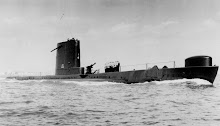 A Somali, part armed militia, part pirate, carries his high-caliber weapon on a beach in the central Somali town of Hobyo GETTY
A Somali, part armed militia, part pirate, carries his high-caliber weapon on a beach in the central Somali town of Hobyo GETTYTuesday 22 March 2011
Mujahideen weapons training
Mujahideen weapons training: the arms profession is a dangerous profession! I kid thee not!
"Spassiba!"
Russian word "Spassiba!" in English is "Thank you!", in French "S...pas si bas !" is translated more or less as "Hey, not so low!"
Sunday 6 March 2011
UK defence capability is seriously in trouble
Will the UK be able to even defend its borders when it comes to the crunch? Troop size being cut down to a staggering number, defence equipment are equally being cut down to size as well, defence procurements shelved...
What UK Defence Secretary Liam Fox predicted in July last year is now becoming true
From The Daily Telegraph:. UK MoD to downsize armed forces -- 11,000 troops (the size of the entire UK contingent in Afganhistan) to be sacked within months
British Army today: 100,290 Tomorrow? 95,290 -- Royal Navy today: 35,650 Tomorrow? 32,350 Royal Air Force today 39,750 Tomorrow? 37,050
There is every chance the UK navy might not be able to deploy in case of full-scale conflict between the two Koreas
One solution? France and UK joining nuclear submarine forces is the right way to go
Cross posted from Hillblogger3
What UK Defence Secretary Liam Fox predicted in July last year is now becoming true
From The Daily Telegraph:. UK MoD to downsize armed forces -- 11,000 troops (the size of the entire UK contingent in Afganhistan) to be sacked within months
British Army today: 100,290 Tomorrow? 95,290 -- Royal Navy today: 35,650 Tomorrow? 32,350 Royal Air Force today 39,750 Tomorrow? 37,050
There is every chance the UK navy might not be able to deploy in case of full-scale conflict between the two Koreas
One solution? France and UK joining nuclear submarine forces is the right way to go
Cross posted from Hillblogger3
Monday 3 January 2011
Wednesday 15 December 2010
Tank Crossing in the snow
Pics of Tank Crossing int the Salisbury Plain Military Lands, England early December 2010... The UK was experiencing its first taste of winter, snow, fog, etc., but it didn't stop us driving from the Capital of Europe to Somerset where the weather was unbelievably spring-like!
Crossposted from hillblogger3
Photos by Hillstation1
Crossposted from hillblogger3
Photos by Hillstation1
Friday 26 November 2010
SI VIS PACEM PARA BELLUM -- USS GEORGE WASHINGTON OFF KOREA PENINSULA COAST
America deploys USS GEORGE WASHINGTON! Today, no better dogma illustrates America's determination to maintain peace in the Korea Peninsula region...
Photo (above) credit: MaritimeQuest.Com
Monday 27 September 2010
Naval mercenaries
An international private navy (naval mercenaries by another name)? What next? An international private army? And before you know it, there will be regional wars pitting private armed forces...
 A Somali, part armed militia, part pirate, carries his high-caliber weapon on a beach in the central Somali town of Hobyo GETTY
A Somali, part armed militia, part pirate, carries his high-caliber weapon on a beach in the central Somali town of Hobyo GETTYFrom The Independent: Insurance firms plan private navy to take on Somali pirates
Patrol boats crewed by armed guards to protect valuable ships in Gulf of Aden
Insurers have drawn up plans for the world’s first private navy to try to turn the tide against Somali pirates who continue to plague the global shipping industry by hijacking vessels for ransoms of more than £100m a year, The Independent has learnt.
The new navy, which has the agreement in principle of several shipping groups and is being considered by the British Government, is the latest attempt to counter the increasingly sophisticated and aggressive piracy gangs who operate up to 1,200 miles from their bases in the Horn of Africa and are about to launch a new wave of seaborne attacks following the monsoon season.A multi-national naval force, including an EU fleet currently commanded by a British officer, has dramatically reduced the number of assaults in the Gulf of Aden in recent months. But seizures continue with 16 ships and 354 sailors currently being held hostage. The Independent has seen Nato documents which show both ransom payments and the period that pirates are holding vessels have doubled in the last 12 months to an average $4m and 117 days respectively.
In response, a leading London insurer is pushing ahead with radical proposals to create a private fleet of about 20 patrol boats crewed by armed guards to bolster the international military presence off the Somali coast. They would act as escorts and fast-response vessels for shipping passing through the Suez Canal and the Indian Ocean.Jardine Lloyd Thompson Group (JLT), which insures 14 per cent of the world’s commercial shipping fleet, said the unprecedented “private navy” would work under the direct control of the military with clear rules of engagement valid under international law. Early discussions have also been held with the Ministry of Defence, the Department of Transport and the Foreign Office.The revelation comes as a coalition of shipping organisations and seafarers’ unions today call for governments to dedicate greater resources towards tackling piracy off Somalia.Sean Woollerson, a senior partner with JLT, told The Independent: “We are looking at setting up a private navy to escort vessels through the danger zones. We would have armed personnel with fast boats escorting ships and make it very clear to any Somali vessels in the vicinity that they are entering a protected area.“At the moment there is a disconnect between the private security sector and the international naval force. We think we can help remedy that and place this force under the control of the multi-national force. We look after about 5,000 ships and have had 10 vessels taken in total, including a seizure where one crew member was shot and killed. Piracy is a serious problem, these are criminals basically extorting funds, so why not do something more proactive?”The force, which would have set-up costs of around £10m, would be funded by insurers and shipping companies in return for a reduction on the anti-piracy insurance premiums, which average around £50,000 per voyage and can reach £300,000 for a super-tanker. The maritime insurance industry, much of it based in London, has borne the brunt of the financial cost of the piracy problem, paying out $300m (£191m) in ransoms and associated costs in the last two years alone.
More here.
Subscribe to:
Posts (Atom)





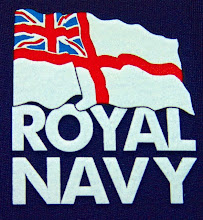

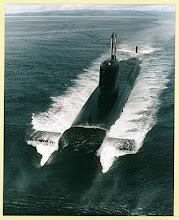
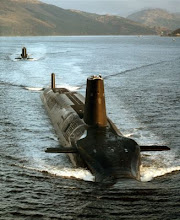



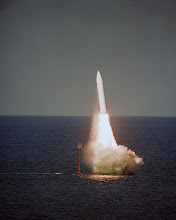

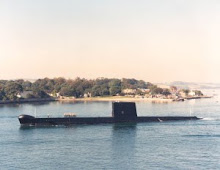.jpg)

